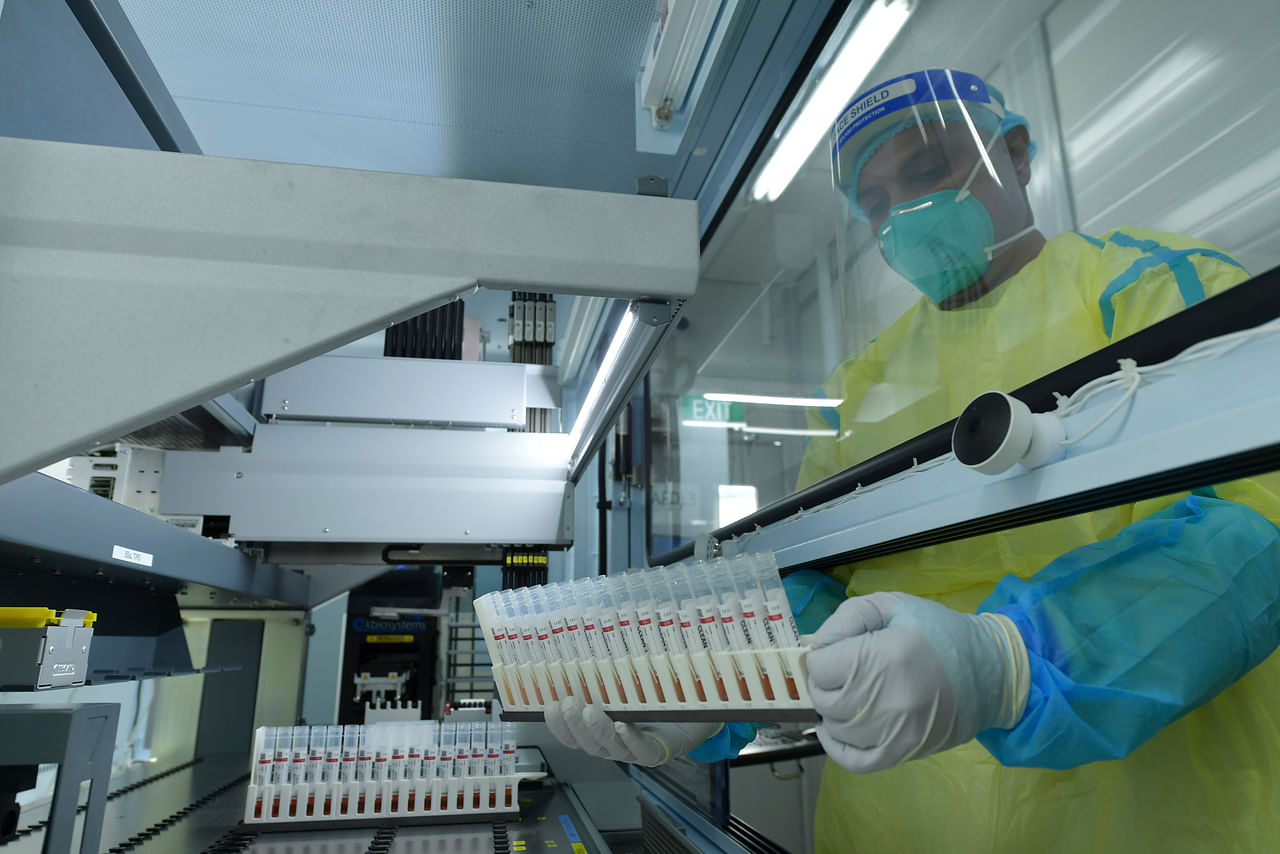DSO scientist led team that created mobile labs for Covid-19 PCR tests
Sign up now: Get ST's newsletters delivered to your inbox

Helping to combat a pandemic has been a dream of Dr Mahesh Uttamchandani's ever since he watched the 1995 pandemic flick Outbreak.
ST PHOTO: GAVIN FOO
SINGAPORE - As Covid-19 ravaged Singapore in 2020, particularly within the confines of migrant worker dormitories, the capacity to run tests that confirm infection needed to increase rapidly.
Yet conventional laboratories would take too much time to build, and they would need trained biologists who can handle sophisticated test procedures.
Enter Dr Mahesh Uttamchandani, 41, director of the combat protection and performance programme at the Defence Medical and Environmental Research Institute in DSO National Laboratories.
He led an inter-agency team to develop and deploy the forward deployment laboratory (FDL) within four months, a feat that won the team the Defence Technology Prize in the team (engineering) category last year.
FDLs - mobile laboratories for polymerase chain reaction (PCR) tests built within a shipping container - can be readily deployed in the field and scaled up.
The four currently in operation at Changi Airport Terminal 4 have boosted the Republic's testing capacity by 10,000 per day.
Helping to combat a pandemic has been a dream of Dr Uttamchandani's ever since he watched the 1995 pandemic flick Outbreak, which starred actor Dustin Hoffman. The film sparked in him, a teenager at the time, an enduring fascination in microbiology.
"In that film, he (Hoffman's character) was trying to contain this outbreak in the field, attribute its cause and, in that way, try to save humanity."
Inspired, he went on to study microbiology at the National University of Singapore (NUS) for both his undergraduate and doctorate degrees.
Although many of his projects are classified, Dr Uttamchandani lets on that he has enjoyed every project he has been involved in, even those that require disciplines that are a far cry from his own training, such as psychology.

hndefence - A worker handling Covid-19 polymerase chain reaction test samples inside a forward deployment laboratory. Credit: Ministry of Defence
PHOTO: MINISTRY OF DEFENCE
But the passionate educator, who views his adjunct teaching at NUS as a way to destress, does have a soft spot for one particular breakthrough - the training curriculum he helped design for FDL staff.
He said: "The breakthrough was to compartmentalise the training so that we could convey what an undergraduate would take several years to cover within a couple of weeks."
This meant translating the PCR testing procedure into very specific tasks divided among several people, instead of one biologist.
He enthused: "Really, we had people who never touched science before, like musicians, chefs, housewives - anyone willing to help in the fight against Covid-19 and was not afraid to handle Covid-19 samples could get trained."


